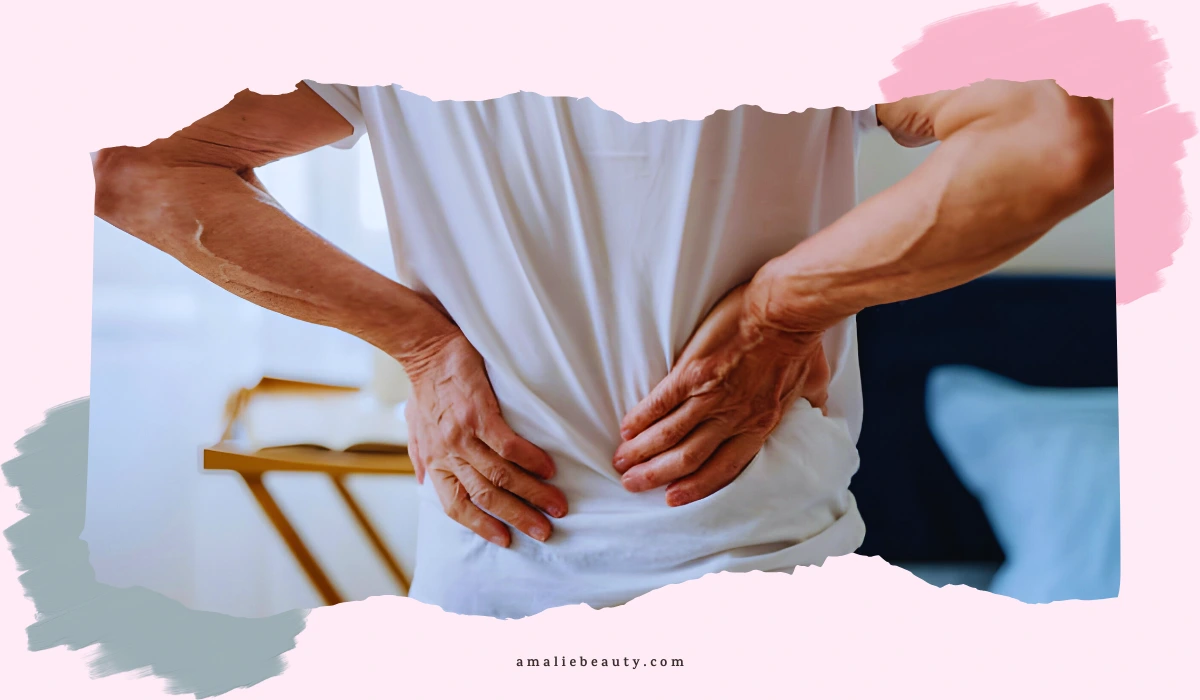One day, you wake up, start your day with exercise, and suddenly feel a bulge on the side of your pelvic bone. Yes, that’s right, you’ve got a hernia, and it can cause severe pain even in your back. If you are wondering about how a hernia can cause back pain, the answer is simple: it can.
When you have a hernia, the tissues obstruct your muscle barrier, which can put stress on several of your nerves and vessels. This leads to needle-like pain, and it can affect various parts of your body, including your back.
In 2019 alone, more than 32 million people around the world suffered from femoral, abdominal, and inguinal hernia. Hernia in men is more common than in women; according to a report, around 25% of men and only 2% of women get inguinal hernia in their lifetime. Anyway, here, you are going to learn about all the effects your hernia might have given to your body, so keep reading:
A Hernia And It’s Relation With Back Pain
Usually, hernia is related to only an abdominal issue, but it is much more than that. When your muscular barrier under the abdomen breaks, it causes the tissues present in the area to get out into the pelvic structure. This obstruction of either your intestine or any other organ present in the area can cause severe pain.

Moreover, muscle barrier damage and tissue obstruction can also put excessive stress on your spinal nerves, causing pain in your back. Although most of the hernias can cause back pain and have dire effects on your health, they can also be limited and have fewer effects on you.
Slipped disks or spinal hernia is named for the condition which causes back pain. So, if you have intense pain in your backbone, it may be due to your slipped disk. Your backbone is sealed with an exterior barrier called an annulus, and when it tears, and the nucleus of your spinal disk gets out, it causes your back pain and numbness. In addition to that, a herniated disk can put pressure on your spinal nerves and cause tingling as well.
Also Check: Does Peanut Butter Lower Cortisol? What Is The Truth?
Can Spinal Hernia Be Life-Threatening?
Spinal or lumbar hernia is one of the signs of spinal degeneration and can be life-threatening if left untreated. When a person gets cervical disc herniation, it most likely causes pain ranging from mild to intense, which can increase over time along with the risk of spinal damage.
If you suddenly suffer from disc herniation, make sure you are getting it treated surgically, as it can cause permanent damage to your spine and can even cause paralysis if left untreated. In some serious cases of several spinal herniations, it can even be life-threatening.
Common Effects Of Hernia On Other Body Parts
When you get a hernia in your abdomen or even spine, it can affect the other parts of the body. This is due to the stress that herniated tissues put on the nerves and other tissues, which can cause severe pain and swelling in the area. In some cases of groin hernia, the tissues reach the testicles and can cause visible effects and swelling. Anyway, here are some common effects of hernia on other parts of your body:
Swelling And Pain
When you have obstructive herniated tissue out of your muscular barrier, it causes inflammation and a burning sensation when you move. One of the most common and painful types of hernia is called incarcerated hernia, which is caused when a portion of the intestine gets tangled in your abdominal barrier. This can put pressure on other nearby tissues and cause pain and swelling.
Disrupted Bowel Movement
An obstructed abdominal wall and herniated tissue can block your bowel movement and can even block gas movement. When you get an incarcerated hernia, your intestines break out of the abdominal wall, which can affect your digestion and block your stool movement.
Nausea And Vomiting
A para esophageal or type II hernia can cause intense pain and regurgitation in your esophagus. This may lead to intense pain and vomiting, along with severe nausea and discomfort. If you have this type of hernia, this can make you low in breath and can cause suffocation as the organs obstruct the abdominal wall and get into the lower parts of your esophagus.
Relief From Back Pain After Surgery
Proper recovery is the best option you have for getting relief from herniated disc pain. After you get the surgical treatment for your herniated disc, you might still be having numbness and pain in your back. This is due to continuous stress on your nerves due to the disc, and it can even be intense at some times.
Make sure you are taking your recovery seriously and doing all the techniques for reducing the aftereffects of herniated discs. Doing aerobic exercises after your hernia surgery can be beneficial in your recovery. Gentle exercises like walking, jogging, and biking will increase your blood flow and increase the oxygen supply as well.
Another thing to keep in mind is that you have to reduce your movement for at least 2 weeks after surgery. However, you can start your gentle walking and other techniques for recovery after that period.
Read More: How To Treat High DHEA Levels In Females? Things To Know
The Wrap-Up
Hernia can be caused during heavy lifting and intense activities when you have a weak abdominal barrier. Usually, when you get a hernia, it becomes a sac or bulge on your skin due to the obstruction. It happens when the weak point in your strong abdominal wall breaks and allows the organ tissues to get out.
When it comes to treatment and relief, only mild cases of herniated disc can repair itself in around 6 months. However, other types of hernia need to be surgically replaced back to their place, and you’ll need a period of at least two weeks to recover from the surgery. Make sure you are taking prescribed medications for pain and swelling, as a hernia causes a lot of pain and can even result in your fainting.

